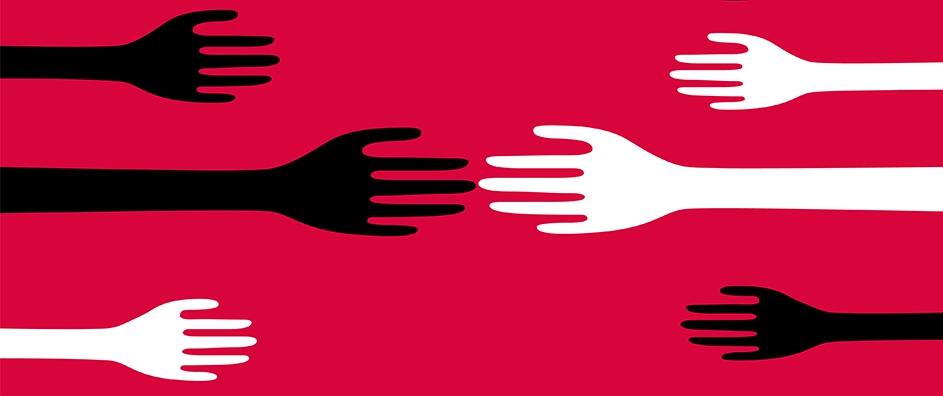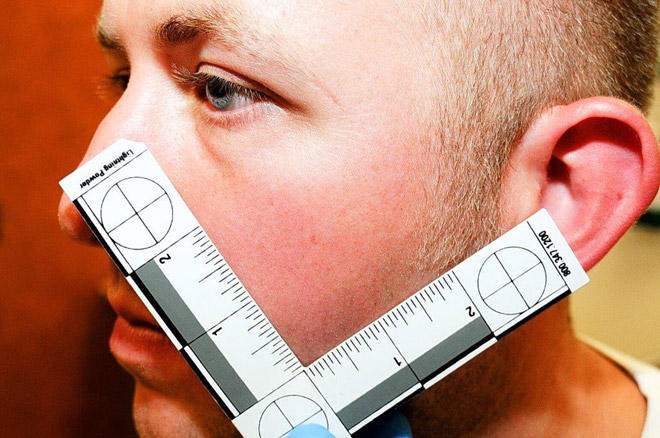The views expressed in our content reflect individual perspectives and do not represent the authoritative views of the Baha'i Faith.
In contrast to police officer Darren Wilson, who characterized Michael Brown as a “demon” with “immense power,” other witnesses described Brown’s actions in more realistic physical detail.
One witness said: “He stopped. He did turn, he did some sort of body gesture” before adding, “it was not in a surrendering motion.” This begs the question of what a surrendering motion looks like to this witness, or to you or me. Other witnesses describe the same “body gesture” as Brown raising his hands in surrender.
Even when Officer Wilson describes Michael Brown’s behavior, he injects his opinion about what motivated it: “He turns, and when he looked at me, he made like a grunting, like aggravated sound …” In another context, he describes it this way: “When [Brown] stopped, he turned, looked at me, made like a grunting noise and had the most intense, aggressive face I’ve ever seen on a person.”
The sound that Wilson describes as grunting could represent a wide array of emotions: surprise, fear, pain, and, yes, anger or aggravation. But in this context, to interpret the sound as having a singular meaning departs from the facts and delves into subjective interpretation.
How many of us, I have to wonder, are aware of the distinction?
The Michael Brown that his friend, Dorian Johnson, describes comes across as a flawed, very human teenager. But the one Darren Wilson describes is a superhuman or even inhuman monster.
This attribution of non-human or super-human characteristics to a perceived adversary is not a unique circumstance. Years ago, some of you may recall, a man named Rodney King was beaten severely by police officers. The language one officer used to describe King was eerily similar to the way Darren Wilson describes Mike Brown. ’’The look that he gave me was that he looks at you and looks right through you,’’ the policeman said. ’’It’s a bizarre look. On the street I had seen it many times before in drug suspects.’’ The officer also described King as “a monster-like figure akin to a Tasmanian Devil.”
Is this manipulation of the listening or reading audience evidence of intentional hatred and bigotry? Not necessarily. All human beings, from the beginning of life, write their own narratives. Watch any small child confronted with the prospect of disgrace or censure and you’ll see it in action: “I didn’t mean to break the lamp. The dog growled at me and I had to go around him and I wiggled the table. The lamp just fell off.” Or “I didn’t mean to slam the door in your face. You startled me.” Or even, “I didn’t mean to call you a name, but you made me mad.”
I had no choice; you made me do it.
We see this all-too-human dynamic in many aspects of our culture: In incidents as minor as children arguing about who escalated an argument over a toy (“I broke it because you stuck your tongue out at me.”) to domestic abuse (“I hit you because you egged me on / disrespected me / disobeyed me.”) to sexual assault (“I did it because of the way she was dressed / looked at me / didn’t look at me.”)
Consider your own impulses when you are confronted with the horrific prospect of being in the wrong about something. We humans can be artful dodgers. Being caught in a moment of weakness or ignorance or carelessness grips us with the icy hand of embarrassment, which we read as potential humiliation. To avoid that humiliation, we will reflexively feint, parry, thrust and attack whatever and whoever we identify in that moment as the cause.
When Michael Brown’s and Darren Wilson’s lives intersected—a teenager who has done something he knows to be wrong, confronted by a man with a preconceived notion about the environment in which the two met—tragedy ensued. Wilson testified about the neighborhood where he encountered Brown: “There’s a lot of gangs that reside or associate with that area. There’s a lot of violence in that area, there’s a lot of gun activity, drug activity; it is just not a very well-liked community. That community doesn’t like the police.”
The violence leading up to Michael Brown’s death occurred in this context, between two young men, each with something to protect and something to fear.
The bad news: nature programs us to reflexively fight or flee when threatened. That built-in impulse to shield ourselves by placing blame and then attacking the blameworthy (whether mentally or physically) can become especially dangerous. The good news: we have evolved to a point where each of us, in large part, has become responsible for our own evolution. We can guide it.
Wait, you might say, that’s the good news?
The Baha’i teachings tell us that this stage in the spiritual maturation and development of humanity empowers each person to act freely:
…there are certain things to which man is forced and compelled, such as sleep, death, sickness, decline of power, injuries and misfortunes; these are not subject to the will of man, and he is not responsible for them, for he is compelled to endure them. But in the choice of good and bad actions he is free, and he commits them according to his own will. – Abdu’l-Baha, Some Answered Questions, p. 248.
You May Also Like
Comments


















Have we made a judgment before all the evidence was in? Its vital that we do not rush to judgment. Killing an innocent is just as wrong as unjustly condemning another